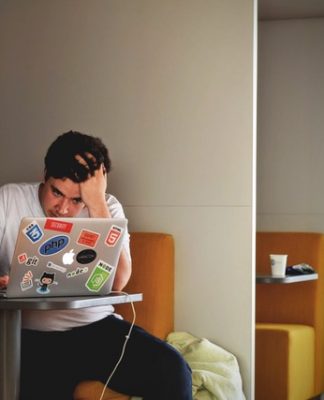This past weekend I had the amazing opportunity to spend the day with one of my close friends at a spa. It left all of wishing that it could be a daily indulgence. Although it is unlikely for any of us to relocate to the spa of our choosing permanently, it does not mean that we cannot take the principles there with us to battle more effectively through times of stress. Journey with me as I reflect on ways to do so.
Learn to Rest & Reflect In the Heaviness
It is often commonplace for spas to have different sauna options. They vary in regards to different levels of heat, steam, and the inclusion of different minerals. One thing that was noticeable across the day is that the higher the temperature, the heavier the room felt. And, in those rooms, usually, there were supports and rugs to lay down. This allowed us to take in the stillness of the room, engage in deep breathing, and rest.
In the midst of heavy/stressful days, we have lots of options. It is easy to become overwhelmed and frustrated, but it is hardly productive. Why not instead take a path similar to what we do in the sauna above? Taking even short periods of time to reflect and center can have tremendous benefits. Such an approach is central to the concept of mindfulness. There are organizations and even phone and tablet apps (i.e., the iPhone even now has this as part of their wellbeing area) that are designed to help us learn such principles.
One barrier that is often mentioned to doing so is the lack of time. But, there are short options, such as 3- and 5-minute breathing and meditation exercises that can be fit into any schedule. And, if used from a phone, can be done anywhere headphones are allowed! Check out Mindful.org for examples!
Pinpoint & Strengthen
Throughout our day we also took part in yoga and received a massage. Yoga helped us to release and also strengthen certain muscle groups. In contrast, the massage therapist worked to pinpoint different muscle groups to release tension from our bodies.
Similar processes are needed during transitional and stressful periods. Our ability to be exact about what requires change and what is generating stress is crucial to effectively moving forward. Many of us have learned strategies for tackling such areas, such as using tables, charts graphs and lists to organize data. And, although we do not like to admit it, without these supports, we are unable to tackle problems effectively, as we leave out critical information that could alter our decisions. Even if you do not use these approaches, finding some way to identify a step-by-step approach can increase your level of effectiveness and decrease errors.
One such example may be the Shewhart Cycle (https://www.ncbi.nlm.nih.gov/pmc/articles/PMC2464836/), which requires us to take steps to Plan, Do, Study, and Act. Even here, in steps one and three we are asked to reflect on this process and whether changes can be made. Another method is the Problem-Solving Framework, which requires problem identification, verification, definition, root-cause analysis, alternative generation, an evaluation of alternatives, implementation, and post-implementation review. You can see examples of these steps here: http://www.referenceforbusiness.com/management/Or-Pr/Problem-Solving.html
Organizing this information puts us in line to begin the process of strengthening. Effective problem solving helps us to set ourselves apart as strong professionals who can be counted on to push forward in times of crises. It also puts us in a position where we are equipped to effectively use these tools to move our family’s forward when crises occur.
Be Open to New Experiences
In every spa, I have experienced something different. A different method of releasing toxins, different saunas, or an introduction to a new herb that is designed to cleanse my pores. But, every time I have been open to trying these new paths, I have enjoyed them and seen positive results. Sometimes, it is in our willingness to be open to new paths and perspectives, that we are able to see the generation of new avenues and possibilities.
Within the work environment, this may require adding new insights to your team or considering the recommendations of an outside consultant. Within the family environment, it may mean thinking through new applications of Biblical scripture, considering the feedback of a trusted mentor, or seeking counseling. But the benefits are great. Not only does the application of active problem-solving help in the immediate situation, but it provides a platform of growth for the family, that allows the children to learn effective problem-solving strategies and that also increase the family’s likelihood of effectively collaborating together on future problems.
Reflection Questions:
- How do you find ways to stop and reflect during busy days or moments of increased stress?
- What problem-solving strategies are effective for you? What ineffective methods can be replaced with options that are similar to those above?
- What prevents you from being open to new perspectives when working through problems?
Additional Readings:
What are the advantages of a diverse workplace: http://smallbusiness.chron.com/advantages-diverse-workforce-18780.html
Blechman, E. A., & McEnroe, M. J. (1985). Effective family problem solving. Child Development, 56, 429-437.
Online Family Problem-Solving Training: http://www.apa.org/pi/about/publications/caregivers/practice-settings/intervention/problem-solving.aspx


 Tamara Reeves, Ph.D., grew up in Oklahoma City, OK, and graduated from high school from Douglass with hopes of becoming a psychologist. Dr. Reeves went on to complete her Bachelor of Arts degree at the University of Central Oklahoma in psychology and graduated Cum Laude. At UCO, Dr. Reeves applied for the Ronald McNair Scholar’s program, and was accepted into the first cohort at this institution. She completed two research projects within this program and began working for a federally funded clinical research trial during her senior year in college. In the fall of 2002, Dr. Reeves began her graduate work at the University of Memphis. She subsequently completed her master’s (May 2005) and doctoral degree (August 2008) within the clinical psychology program.
Dr. Reeves initially began her graduate work with an emphasis in child and family studies. While completing her pre-doctoral internship at the University of Texas Health Science Center at San Antonio, Dr. Reeves began working within two grant funded programs that helped develop clinical services for adults with schizophrenia and bipolar disorder. Following this year of training, Dr. Reeves moved back to Oklahoma and worked for three years within the Alcohol and Drug Abuse Prevention Office at the University of Central Oklahoma. At present, she works as a Licensed Clinical Psychologist and the owner of
Tamara Reeves, Ph.D., grew up in Oklahoma City, OK, and graduated from high school from Douglass with hopes of becoming a psychologist. Dr. Reeves went on to complete her Bachelor of Arts degree at the University of Central Oklahoma in psychology and graduated Cum Laude. At UCO, Dr. Reeves applied for the Ronald McNair Scholar’s program, and was accepted into the first cohort at this institution. She completed two research projects within this program and began working for a federally funded clinical research trial during her senior year in college. In the fall of 2002, Dr. Reeves began her graduate work at the University of Memphis. She subsequently completed her master’s (May 2005) and doctoral degree (August 2008) within the clinical psychology program.
Dr. Reeves initially began her graduate work with an emphasis in child and family studies. While completing her pre-doctoral internship at the University of Texas Health Science Center at San Antonio, Dr. Reeves began working within two grant funded programs that helped develop clinical services for adults with schizophrenia and bipolar disorder. Following this year of training, Dr. Reeves moved back to Oklahoma and worked for three years within the Alcohol and Drug Abuse Prevention Office at the University of Central Oklahoma. At present, she works as a Licensed Clinical Psychologist and the owner of 

















